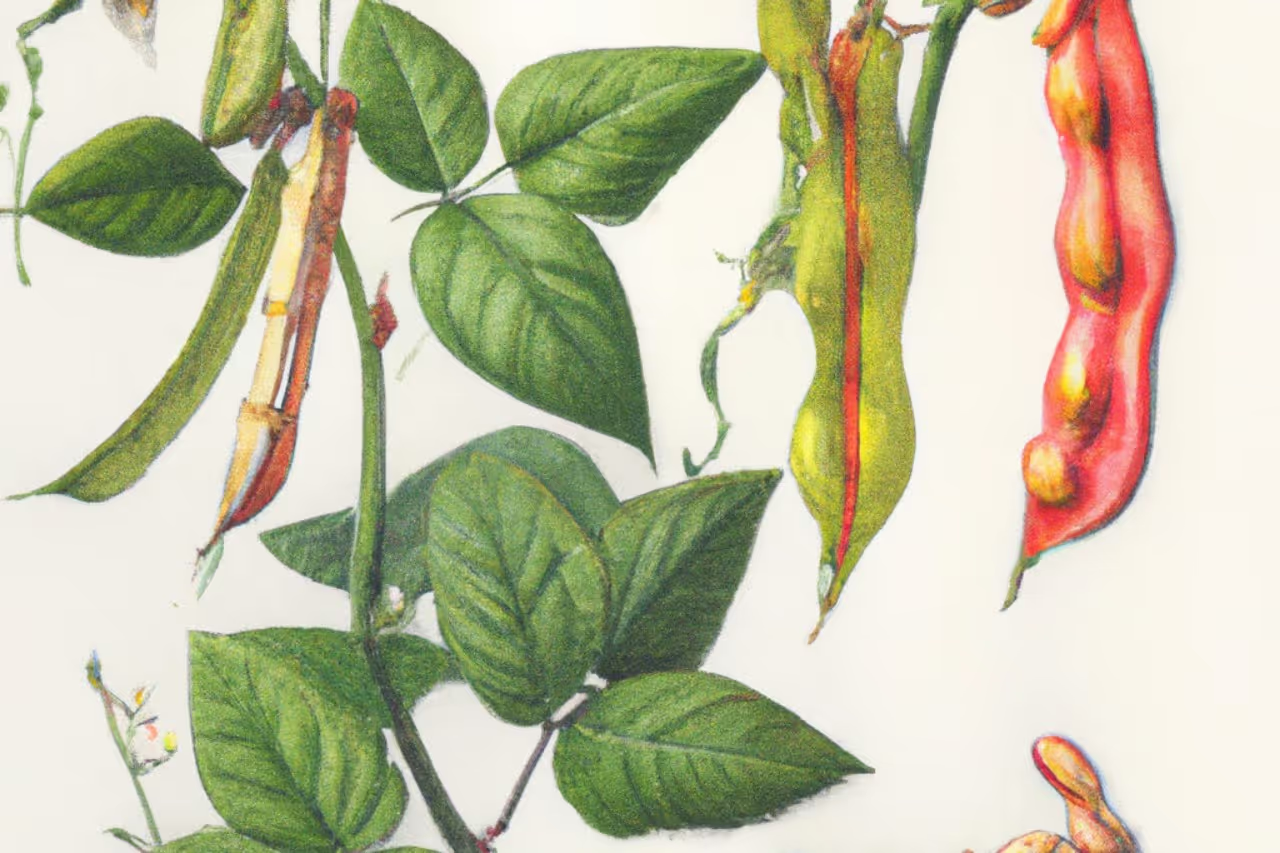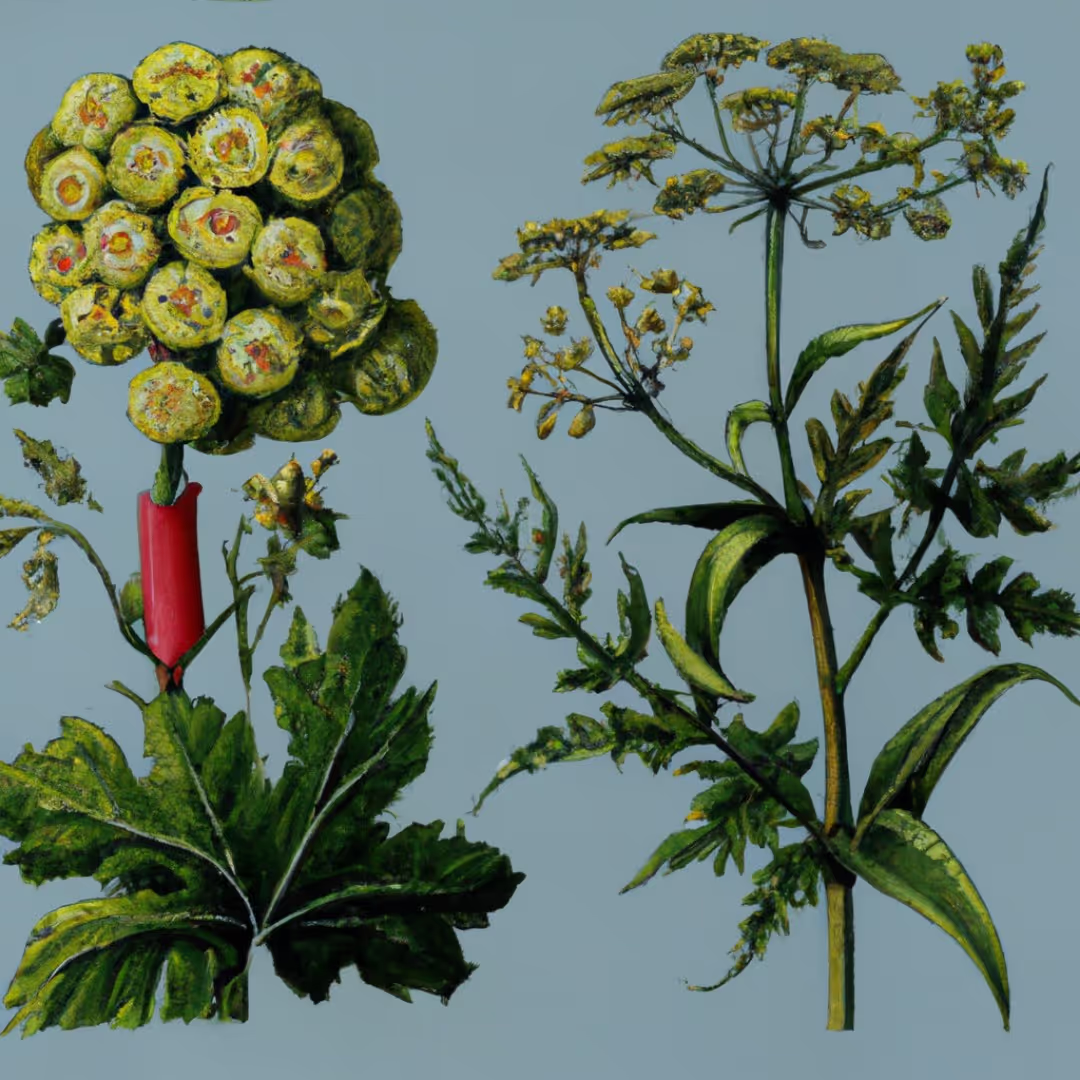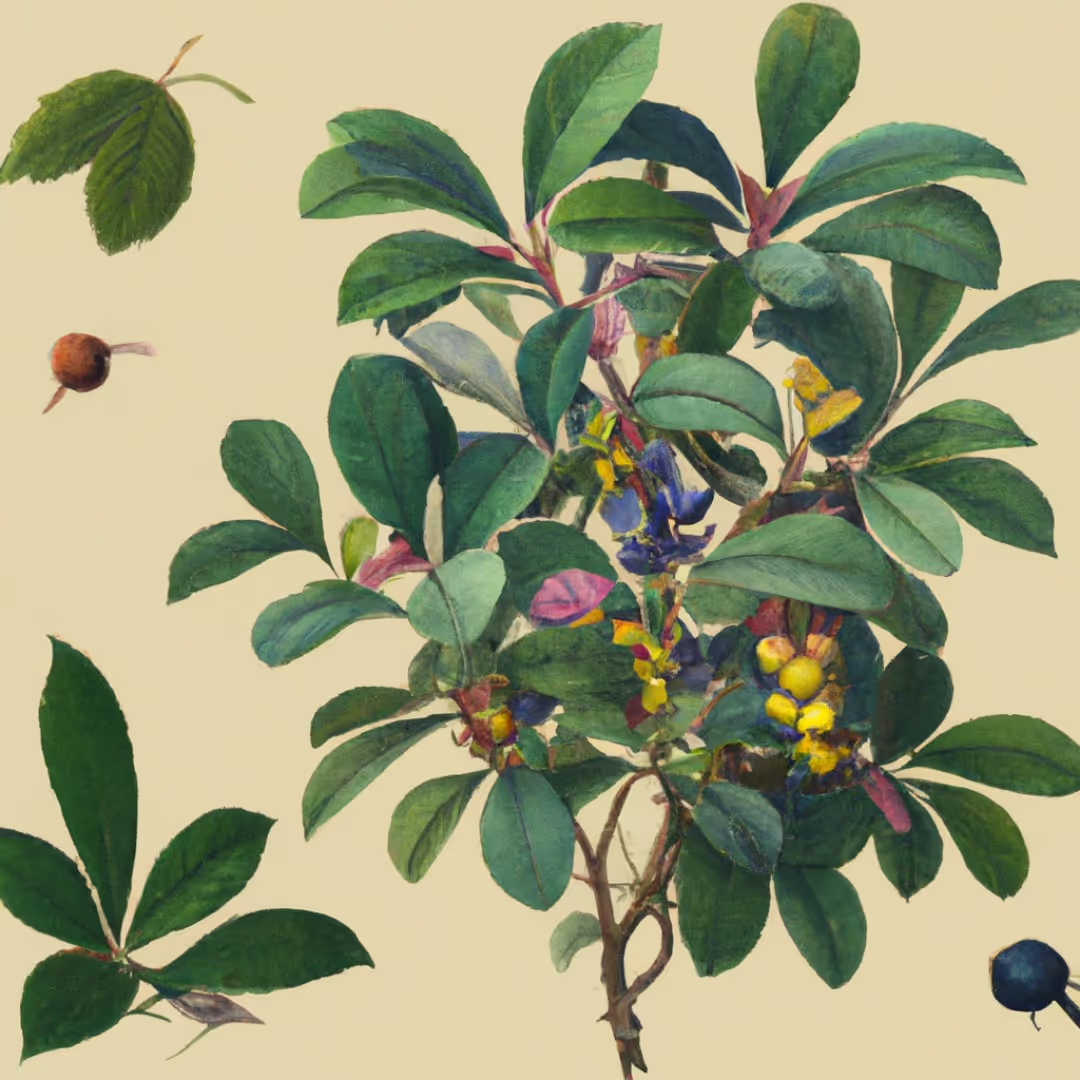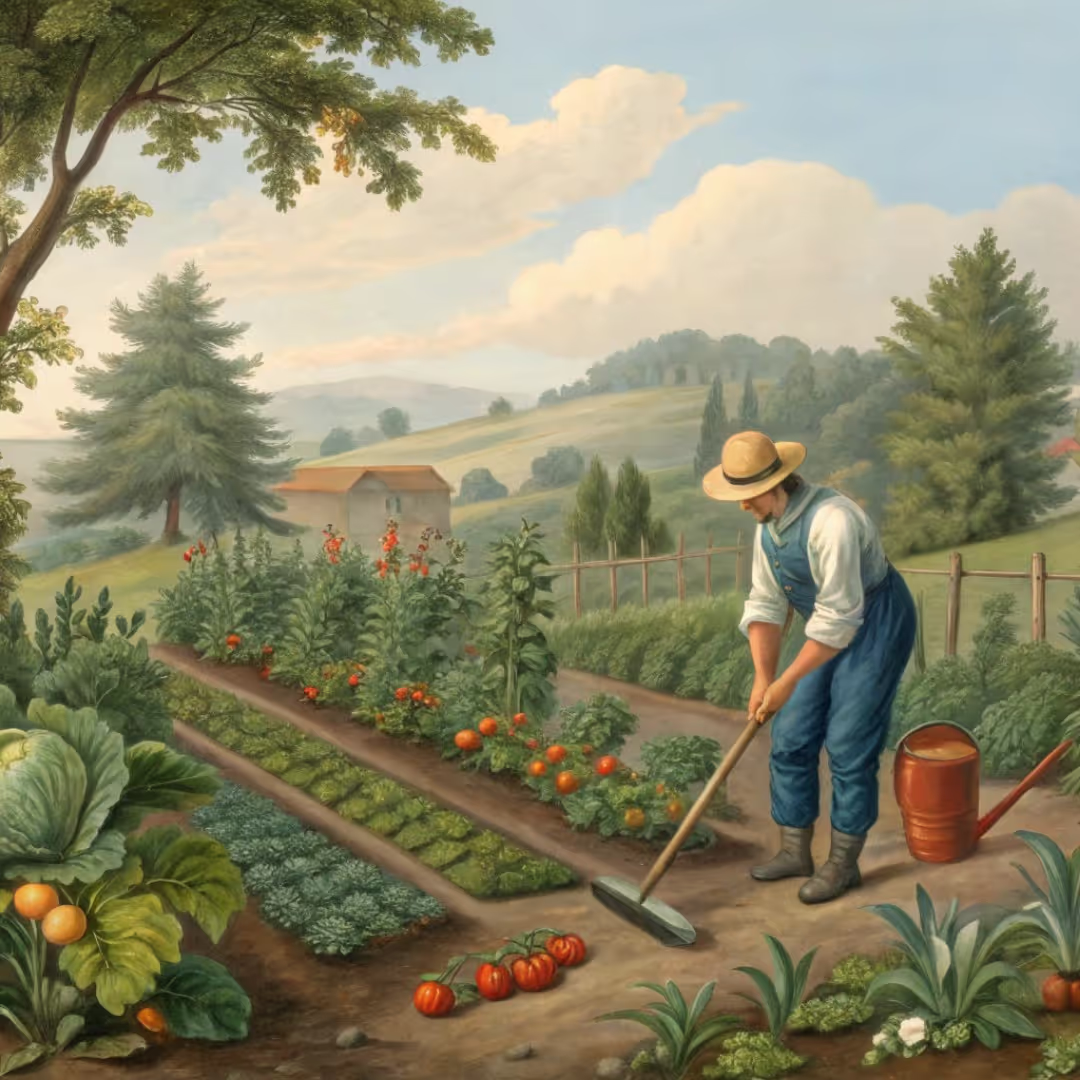How to Grow Fruits
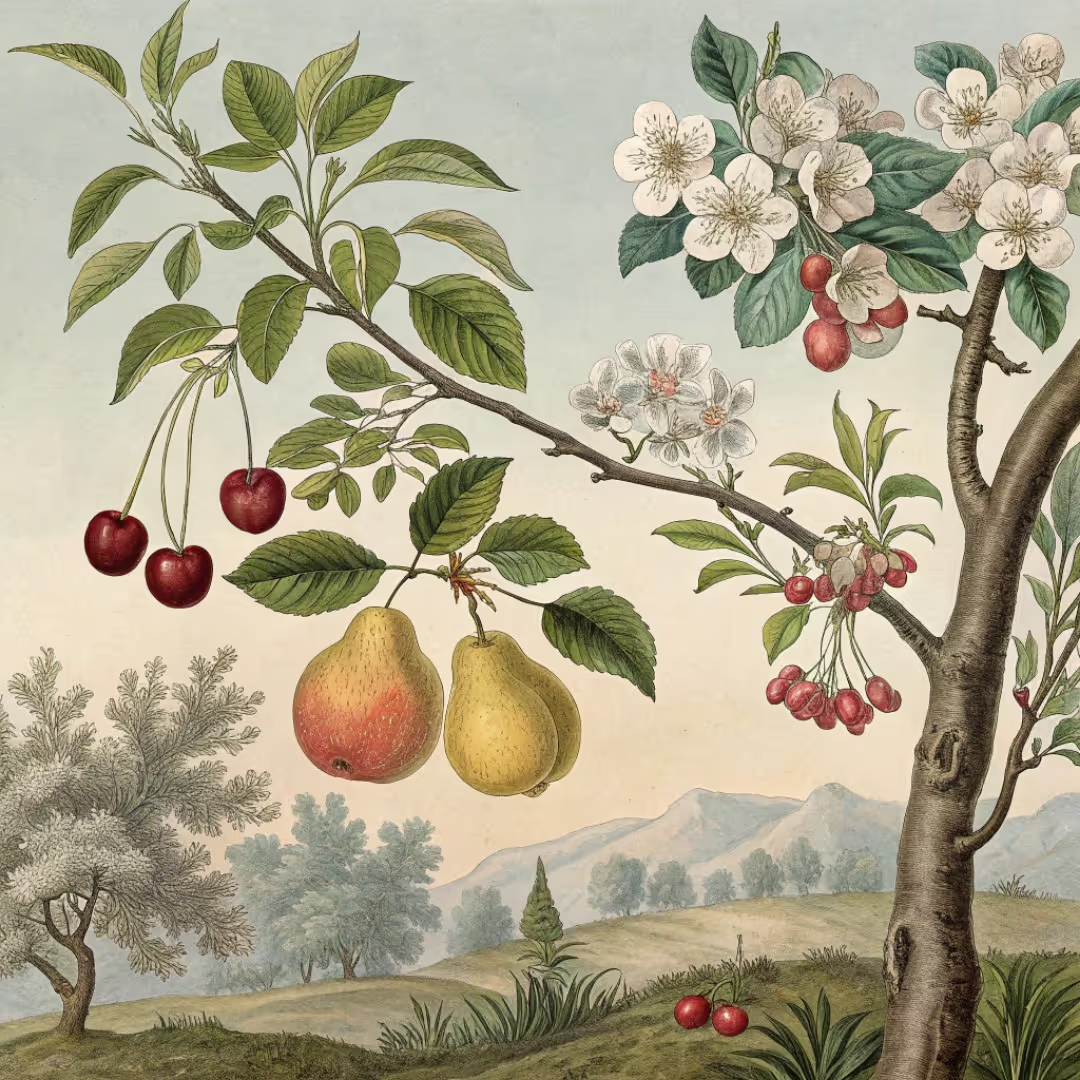
Fruit Trees
Plant Fruit Trees in full sun—6–8 hours daily—in well‑drained soil, pH 6.0–7.0. Space Fruit Trees to match mature spread; keep graft unions above soil, mulch 2–3 inches, and water deeply, 1–2 inches weekly. Choose Fruit Trees by chill hours and pollination needs—apples require partners, peaches often self-fertile. From first bloom to that snap of ripe skin, this guide shows what to plant, prune, and feed for real flavor.
Cheatsheet: Fast-Track Fruit Tree Success
🌞 Site & Variety
- Full sun—6+ hrs daily.
- Rich, well-drained soil (pH 6.0-7.0).
- Pick climate-matched disease-resistant cultivars.
- Spacing: Apples 15-20 ft (4.5-6 m), Peaches 12-15 ft (3.5-4.5 m).
🌱 Planting Steps
- Dig hole 2x rootball width, just as deep.
- Mix compost with native soil.
- Set root flare at soil line; backfill gently.
- Water deeply; mulch 2-3 in (5-8 cm) away from trunk.
💧 Water & Feed
- 1 inch (2.5 cm) water/week—more in heat.
- Feed with balanced fertilizer early spring.
- Top-dress with compost yearly for microbe boost.
✂️ Pruning & Training
- Prune in dormancy for shape and airflow.
- Remove dead, damaged, crossing branches.
- Train young trees with stakes or ties.
🐛 Pest & Disease Smart Moves
- Monitor weekly for bugs, spots, wilting.
- Apply dormant oil (late winter).
- Use sticky traps, netting, or organic sprays.
- Clear dropped fruit/leaves—breaks pest cycles.
🛠️ Tools and Products You'll Need
- Bypass pruners
- Spade/shovel
- Compost or well-rotted manure
- Stakes & ties
- Mulch
- pH test kit
- Drip hose or watering can
- Dormant oil spray
🍏 Harvest & Nutrition
- Pick when fruit snaps cleanly and is full color.
- Homegrown fruit can contain up to 3x more antioxidants.
- Reduces food bills and increases self-sufficiency.
Fruit Trees: Site, Light, and Soil
I plant Fruit Trees where they get full sun for 8 hours, because sugar comes from sunlight and airflow keeps foliage dry. I also hedge the wind with hedgerows so blossoms do not shred in spring squalls.
Good soil grows roots first and fruit later. I aim for a loamy texture that drains in 24 to 48 hours, then tune pH to suit the crop.
Quick soil and drainage checks
- Dig a 12 inch by 12 inch by 12 inch hole, fill with water twice, then time the second drain. If water lingers beyond 48 hours, improve drainage or use a mound 8 to 12 inches high.
- Target pH ranges: apples, pears, cherries 6.0 to 7.0, peaches and plums 6.0 to 6.5, citrus 6.0 to 7.5. I soil test every 2 to 3 years.
Climate fit and chill hours
Fruit Trees sleep through winter and count cool time as “chill hours.” Variety choice lives or dies on this fit.
“Many apples need roughly 600 to 1,000 hours under 45 F 7 C” — UC Agriculture and Natural Resources
I match varieties to my site’s chill profile, then watch late frost risk. I have seen a warm March tease open blooms, then a 27 F minus 3 C night erase a year of apples.
“At full bloom, many tree fruit blossoms are damaged near 28 F minus 2 C” — Utah State University Extension
Choosing rootstocks and cultivars
Rootstock decides size, precocity, anchorage, and disease tolerance. Cultivar decides flavor, season, texture, and resistance on top.
Rootstock cheat sheet
- Apple dwarf M.9 or G.41: 8 to 10 feet 2.5 to 3 m tall, fruit in 2 to 3 years, needs staking, great for small yards and espaliers.
- Apple semi-dwarf M.26 or G.935: 10 to 14 feet 3 to 4.3 m, balanced vigor, earlier crops, easier ladder work.
- Apple MM.111 or standard seedling: 16 to 25 feet 5 to 7.6 m, deep roots, widest spacing, long life.
- Pear OHxF 87 or 97: reliable size control and fire blight tolerance per Oregon State and Cornell trials.
- Peach and nectarine on Nemaguard or Lovell: solid vigor on many soils, with nematode tolerance for Nemaguard.
- Cherry Gisela 5 or 6: compact trees with earlier bearing, better for nets and birds.
Pollination made easy
- Self-fertile: peach, nectarine, apricot, sour cherry, many plums, some apples such as ‘Golden Delicious’ can act as pollinizers.
- Needs a partner: most apples, European pears, and sweet cherries. Bloom windows must overlap within about 7 to 10 days.
- Plant partners 15 to 50 feet 4.5 to 15 m apart. I also graft a pollinizer limb onto tight plantings.
Disease resistance pays back
- Apples: ‘Liberty’ and ‘Enterprise’ show strong scab resistance with fire blight tolerance per Cornell recommendations.
- Pears: ‘Harrow Sweet’ for fire blight tolerance from Canadian breeding.
- Peaches: ‘Frost’ for leaf curl tolerance noted by Pacific Northwest trials.
Planting Fruit Trees: bare-root vs container
Bare-root trees ship dormant in late winter and cost less, often half the price of potted trees. They establish quickly because roots are field-grown and uncoiled.
Container trees extend the planting window and show instant growth. I inspect for circling roots and comb them out before planting.
My step-by-step planting method
- Soak bare-root trees 2 to 4 hours before planting, keep roots shaded.
- Dig a hole twice as wide as the roots, the same depth as the nursery line, and roughen the sides for root penetration.
- Set the graft union 2 to 3 inches 5 to 7.5 cm above soil grade to prevent scion rooting.
- Backfill native soil only, water to settle, then mulch 3 to 4 inches 7.5 to 10 cm thick, pulled 4 inches 10 cm away from the trunk.
- Stake dwarfs for 2 to 3 years. I tie with soft, wide material that does not girdle.
Training and pruning for structure and fruit
Strong scaffolds carry heavy crops without tearing. I pick a training system that fits the species and space.
Systems that work
- Central leader for apples and pears: single trunk, tiers of 3 to 4 well-spaced branches, 8 to 10 inch 20 to 25 cm vertical spacing.
- Open center for peaches, nectarines, apricots, and many plums: 3 to 4 main limbs, bowl shape, sun in the middle.
- Espalier or cordon for tight fences: fruiting spurs along flat planes are easy to prune and net.
Winter pruning drives growth, summer pruning calms vigor. I avoid pruning stone fruit in wet weather to limit canker and Eutypa.
Water and nutrition
Young Fruit Trees drink deep and infrequent, then coast. I target about 1 inch 2.5 cm of water per week in mild weather, up to 2 inches 5 cm during heat, using drip at 1 to 2 gallons 3.8 to 7.6 liters per hour emitters.
Fertilizer follows tests, not hunches. A soil or leaf analysis guides nitrogen and micronutrients, and I split nitrogen into two light feeds in spring to avoid pushy growth that invites pests.
Simple feeding rules I live by
- Do not fertilize at planting, just mulch and water.
- Keep mulch off the trunk, and renew it yearly to 3 inches 7.5 cm.
- Compost is great for soil life, but I still test for pH and potassium and calcium.
Crop load, thinning, and biennial tendency
Too much fruit makes small, bland yields and breaks limbs. I thin hard for flavor and annual production.
- Apples: one fruit per cluster, fruits 6 inches 15 cm apart.
- Peaches and nectarines: one fruit every 6 to 8 inches 15 to 20 cm, per Penn State Extension.
- Pears: one or two fruits per spur, spaced 6 inches 15 cm.
If a tree alternates heavy and light years, I thin earlier the heavy year, then summer prune a little to balance vigor. It works better than any prayer I know.
Integrated pest management that actually works
I scout weekly, act early, and use the gentlest effective tactic first. Clean orchard floors, prune for light, and pick up mummies, because sanitation cuts disease pressure sharply.
- Codling moth on apples and pears: pheromone traps to time sprays, bagging fruit, and kaolin clay films. Mating disruption reduces pressure across a block.
- Peach leaf curl: plant tolerant cultivars and apply a dormant copper or chlorothalonil spray before bud swell per UC and PNW guides.
- Fire blight: avoid high nitrogen, prune strikes 8 to 12 inches 20 to 30 cm below infection, and choose resistant varieties.
- Cherry birds: netting beats any scare tactic. I hang the net before color shows.
- Gophers and voles: baskets at planting and trunk guards, plus mow alleys short to remove cover.
Harvest cues and storage
Apples lift cleanly with an upward roll when seeds turn brown and starch clears, then store at 32 to 38 F 0 to 3 C with high humidity. Pears pick firm at the right size and ripen on the counter to avoid gritty cores.
Peaches taste ready before they look perfect. I wait for full aroma and a background color that shifts from green to creamy yellow, then chill at 36 to 40 F 2 to 4 C if needed for short holding.
Containers and small spaces
Dwarf Fruit Trees thrive in 15 to 25 gallon 57 to 95 liter containers with a gritty mix and monthly feeding during growth. Columnar apples and pixie citrus keep patios productive without a ladder.
Root pruning every 3 years keeps vigor in check. I replace one third of the mix and refresh mulch each spring.
Top 10 Fruit Trees for home growers
- Apple ‘Liberty’ on G.41: crisp, disease resistant, heavy spur producer.
- Apple ‘GoldRush’ on M.26: late keeper with high acid-sweet balance and long storage.
- Asian pear ‘Shinseiki’ on OHxF 87: juicy, early, reliable pollen partner.
- European pear ‘Harrow Sweet’ on OHxF 87: fire blight tolerance with rich flavor.
- Peach ‘Contender’ on Lovell: cold hardy with floral aromatics and steady crops.
- Nectarine ‘Arctic Star’ on Nemaguard: low chill and vivid sugar for warm zones.
- Plum ‘Santa Rosa’: classic flavor, handles open center training well.
- Sour cherry ‘Montmorency’ on Mahaleb: self-fertile pies, easy to net.
- Sweet cherry ‘Lapins’ on Gisela 5: self-fertile and compact, great for small yards.
- Fig ‘Violette de Bordeaux’: technically a small tree, sets two crops in heat, zero pollination fuss.
Yields, spacing, and time to fruit
Dwarf apple trees often bear in year 2 to 3 and yield about 30 to 120 pounds 14 to 54 kg per tree once mature, per Washington State and Midwest extension ranges. Semi-dwarf apples reach 100 to 200 pounds 45 to 91 kg, with wider spacing and stronger limbs.
- Spacing guide: dwarf apples and pears 8 to 10 feet 2.5 to 3 m, semi-dwarf 12 to 15 feet 3.5 to 4.5 m, peaches 12 to 15 feet 3.5 to 4.5 m, cherries on dwarf 10 to 12 feet 3 to 3.7 m.
Buying guide, timing, and cost
I order bare-root Fruit Trees from reputable nurseries in late fall for winter delivery. Bare-root costs often run 25 to 45 USD 24 to 43 EUR per tree, while container trees run 45 to 90 USD 43 to 86 EUR.
Ask for rootstock, chill requirement, bloom group, and disease notes. Good nurseries label all four and ship with pruning and planting instructions.
Seasonal calendar I use
- Winter: plant bare-root, dormant spray if needed, prune structure, repair stakes and ties.
- Spring: frost protection with covers or sprinklers, thin fruit early, hang pheromone traps, feed lightly.
- Summer: irrigate deep, summer prune for light and height control, bag fruit or net cherries, scout weekly.
- Fall: harvest, store, rake leaves, remove mummies, soil test and plan amendments.
Field notes and hard-won lessons
I have watched a standard apple split under a bumper crop, which taught me to thin like a merciless chef trimming fat. I have also tasted a backyard ‘GoldRush’ in January that snapped like a cider apple and paid for every careful cut.
Fruit Trees reward patience and small, timely moves. I keep the saw sharp, the soil alive, and the canopy open, then let the sun finish the work.
Stats and sources that guide my practice
“Many apples need roughly 600 to 1,000 hours under 45 F 7 C” — UC Agriculture and Natural Resources
“At full bloom, many tree fruit blossoms are damaged near 28 F minus 2 C” — Utah State University Extension
“Thin peaches to one fruit every 6 to 8 inches 15 to 20 cm” — Penn State Extension
I lean on research from UC ANR, Washington State University, Cornell, Oregon State, and RHS for variety behavior, pruning timing, and spray thresholds. Field notes fill the gaps between charts and weather that refuses to follow the script.
Frequently Asked Questions about Growing Fruit Trees
What is the ideal planting location for fruit trees?
Choose a spot with full sunlight, receiving at least 6 to 8 hours of direct sun daily. Fruit trees thrive in well-draining soil with sufficient air circulation to minimize disease and encourage healthy growth.
When is the best time to plant fruit trees?
The optimal planting time is late winter or early spring, while the trees remain dormant. Cooler temperatures around 40–50°F (4–10°C) ensure the root system becomes well-established before warmer weather arrives.
How should fruit trees be watered effectively?
Provide fruit trees deep watering once per week, allowing water to reach at least 12–18 inches (30–45 cm) into the soil. Increase frequency during hot or dry periods, but avoid waterlogging to prevent root rot and encourage strong root development.
What fertilizer should fruit trees have and how often?
Use a well-balanced fertilizer with a ratio of 10-10-10 (Nitrogen-Phosphorus-Potassium) in early spring and again in early summer. Apply according to label instructions, typically distributing evenly around the drip line to nourish growth and fruit production.
How and when should fruit trees be pruned?
Prune trees annually during late winter or early spring before new growth appears. Remove dead, diseased, or damaged branches first. Then thin and shape the branches, allowing sunlight penetration and air circulation to enhance fruit quality and yield.
What are effective ways to protect fruit trees from pests?
Implement natural deterrents, such as insecticidal soaps and horticultural oils, along with beneficial insects like ladybugs and lacewings. Regularly inspect your fruit trees for early signs of pests or disease, and promptly remove affected foliage or fruit to minimize spread.
When can harvesting begin from newly planted fruit trees?
Depending on variety, most fruit trees produce fruit approximately 2–5 years after planting. Avoid allowing heavy fruit production in the initial few years, encouraging trees to establish stronger limbs and roots for long-term productivity.
Fruit Trees pay you back if you give them the basics and show up. Choose full sun, good drainage, and a rootstock sized for your yard. Water deep and infrequently. Mulch wide. Practice pruning with purpose so light reaches every leaf. Feed the soil with compost. Pair varieties for pollination, stagger ripening for a long season, and thin heavy sets. Scout pests early. Keep tools clean.
Plant the edges with berries for fruit while young trees settle. Then wait. The first blossom will make you grin. The first bite, warm from the branch, reminds you why you planted.


